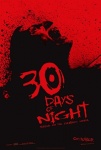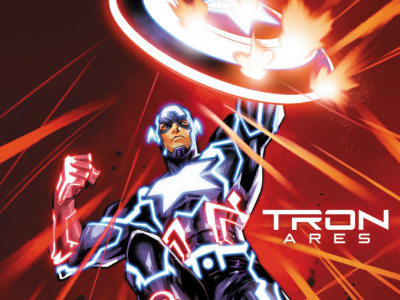
With a no real horror film competition David Slade's adaptation of Steve Niles and Ben Templesmith's 30 Days of Night sucked the most blood out of an anemic box office (down 7% from last year) with an estimated $16 million opening. 30 Days, which scored well with young viewers and genre fans, has a chance to avoid the precipitous 2nd weekend drop that has bedeviled most horror offerings this year since its second frame will be in close proximity to Halloween, traditionally prime time for horror films.
30 Days, which scored 54% positive on the Rotten Tomatoes tally of critical notices, has also earned more critical praise than most horror entries, which could also help it during its second weekend of release. Word of mouth is even more important than good reviews for horror movies and will probably have the most to say about whether 30 Days will be able to hold its numbers next weekend in the face of increased horror film competition from Saw IV.
Historically 30 Days of Night appears to be tied (with Blade: Trinity) for the eighth highest grossing vampire film of all time. Among recent fang-filled flicks Van Helsing (2002, $51.7 million), Blade II (2002, $32 million), Underword: Evolution (2006, $26.8 million), Underworld (2003, $21.7 million), and Blade (1998, $17 million) have all had stronger openings, but with two million admissions already the film version of 30 Days has already reached more people than the 30 Days of Night comics and graphic novels.
Holdovers such as Disney's The Game Plan, Lionsgate's Tyler Perry's Why Did I Get Married and Warner Bros. Michael Clayton all did well while deep dish dramas such as Things We Lost in the Fire ($1.6 million) and Rendition ($4.1 million) fared poorly. The Ben Affleck directed Gone Baby Gone had the strongest opening of any of the new dramas (but still only grossed an estimated $6 million).
The film with the best per theater average of any movie in wide release was the 3-D version of Tim Burton's Nightmare Before Christmas, which opened in 564 digitally-equipped theaters where it earned $5.1 million thanks to an average of $9,122 per venue (30 Days of Night averaged $5,604 per theater). As noted several times previously by ICv2, as more theaters become equipped with digital projection systems, more classic films will get the 3-D treatment and will provide increasing competition for new films.







